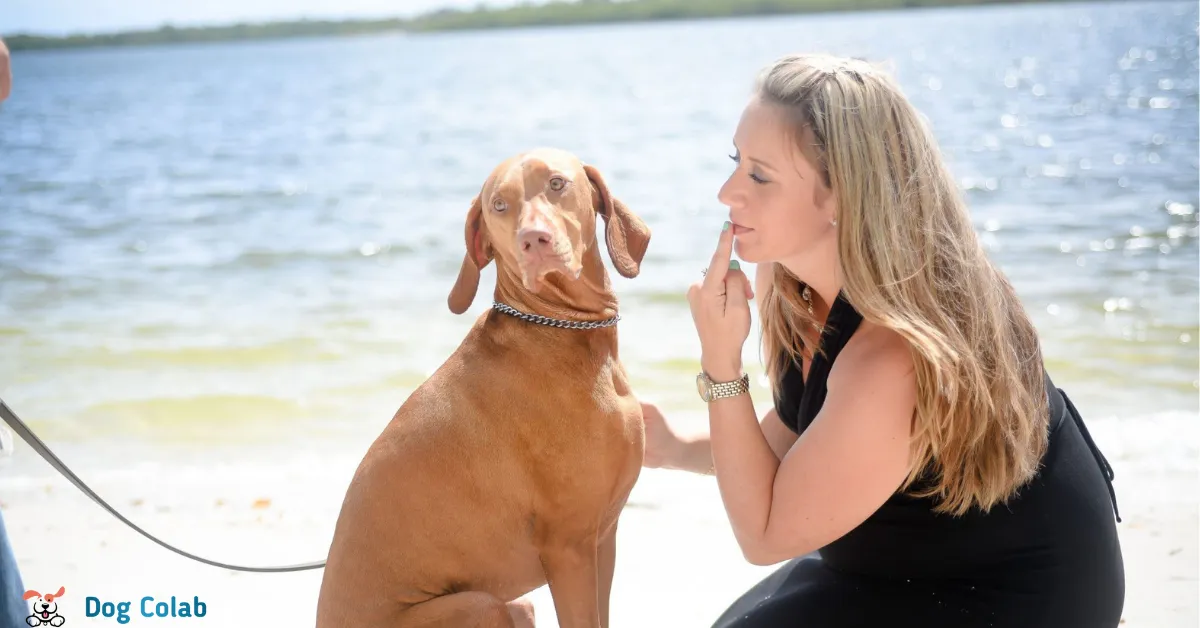Have you ever wondered why your furry friend sometimes seems to pay no attention to you? It’s not uncommon for dogs to ignore their owners from time to time, and there are various reasons behind this behavior. Understanding these reasons can help strengthen the bond between you and your canine companion.
It is first important to rule out medical conditions such as deafness or an ear infection. Stress, inconsistent training, and mental trauma can also cause this behavior. Some owners might be reinforcing this behavior unintentionally.
In this blog post, we will explore some of the common reasons why does my dog ignore me sometimes and some tips that help to stop your dog from ignoring you.
Why Does My Dog Ignore Me Sometimes? (13 Reasons)
There can be several reasons why does my dog ignore me sometimes. Dogs, like humans, have their moods and behaviors influenced by various factors. Here are some possible reasons.
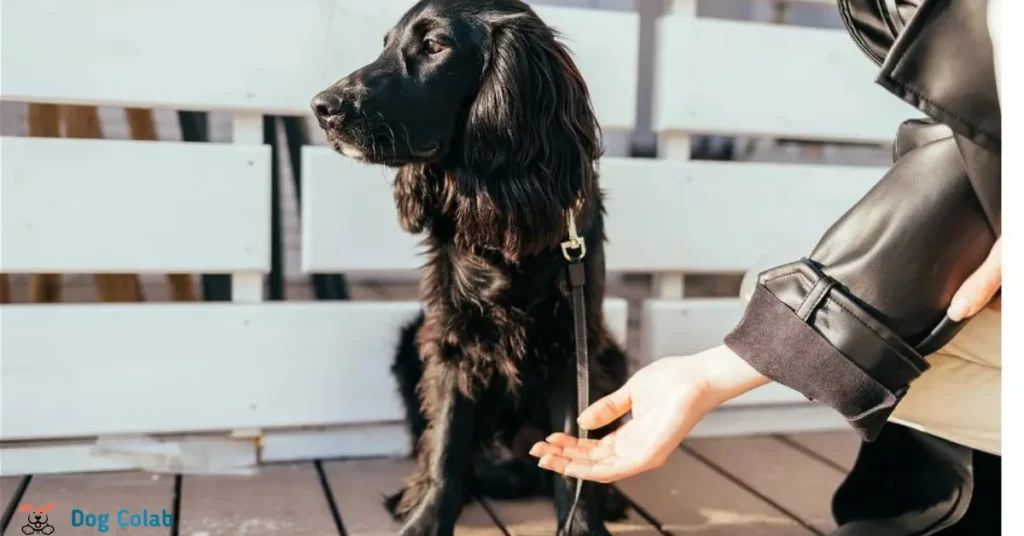
1. Sensory Overload
Dogs have an extraordinary sense of smell, hearing, and sight, which can sometimes lead to sensory overload. In situations where there are too many stimuli, such as crowded environments, loud noises, or unfamiliar scents, your dog might become overwhelmed and less responsive to your commands or presence. Their attention might shift to trying to process the overwhelming sensory input rather than focusing on you.
2. Distractions
Just like humans, dogs can get distracted easily. Their natural curiosity can lead them to explore new scents, sights, and sounds, diverting their attention from you. This is particularly common during walks or playtime outdoors, where a plethora of exciting stimuli might capture their interest. Remember that a distracted dog doesn’t necessarily mean they are intentionally ignoring you; they are simply exploring their surroundings.
3. Health Issues
Health problems can affect a dog’s behavior and responsiveness. If your dog suddenly starts ignoring you, it might be worth considering whether they are in discomfort or pain. Dogs might withdraw or show indifference when they are feeling unwell.
4. Training and Socialization
Proper training and socialization play a crucial role in how your dog responds to you and the world around them. If a dog has not been adequately trained or socialized, it might struggle to understand or obey commands. In such cases, what seems like ignoring might actually be a lack of understanding.
5. Mood and Emotions
Dogs experience a range of emotions, including happiness, fear, anxiety, and even frustration. These emotions can influence their behavior and interactions with you. For instance, if your dog is feeling anxious due to a recent change in their environment or routine, it might appear distant or uninterested.
6. Independence and Attention Span
Dogs, like humans, have varying levels of independence and attention spans. Some dogs are naturally more aloof and independent, while others are highly social and thrive on interaction. If your dog falls on the more independent end of the spectrum, they might seem to ignore you more often, simply because they value their personal space.
7. Lack of Engagement
Dogs are social animals, and they often seek engagement and interaction with their owners. If you’re consistently not providing enough mental and physical stimulation, your dog might find other ways to entertain themselves, leading to what appears as ignoring.
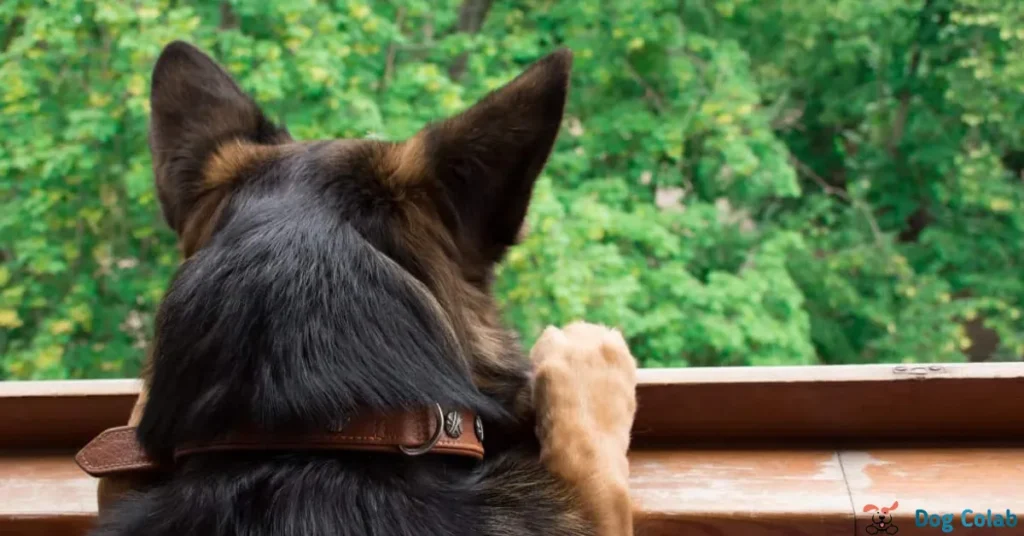
8. Mismatched Communication
Communication is key in any relationship, and the same goes for the human-dog bond. Dogs rely on body language, tone of voice, and verbal cues to understand us. If your communication style doesn’t align with what your dog understands, they might seem to ignore you.
9. Past Experiences
Dogs have memories and can associate certain experiences with people or places. If your dog had a negative experience in the past, they might exhibit avoidance behavior or seem to ignore you as a result of that association.
10. Age and Cognitive Changes
As dogs age, they might experience cognitive changes similar to those seen in elderly humans. This can include memory issues, confusion, and altered behavior. An older dog might appear to ignore you simply because they are struggling to remember or process information.
11. Attention-Seeking Behavior
Paradoxically, some dogs might ignore you to get your attention. They might have learned that ignoring you leads to you trying harder to engage them.
12. Boredom
Another possible reason why does my dog ignore me sometimes is boredom. A bored dog might choose to ignore you because they’re seeking stimulation elsewhere. Engaging in interactive activities and providing toys can help alleviate boredom.
13. Look Different
Dogs are observant animals, and changes in appearance, such as wearing a hat or glasses, can confuse them. Your dog might need time to recognize and adjust to your altered appearance.
Should I Worry About If My Dog Is Ignoring Me?
It’s normal for dogs to have moments when they seem to ignore you. Just like humans, dogs can have their own thoughts and feelings. Sometimes they might be busy exploring or feeling tired.

However, if your dog is consistently ignoring you and acting differently, it could be a sign of something that needs attention. Check if they’re healthy, comfortable, and not in pain.
Recommended Also Read:- Why does my dog lick me when we cuddle.
What To Do If My Dog Is Ignoring Me?
Dogs communicate and behave differently from humans, and understanding their behavior can help you address the issue. Here are some steps you can take if your dog is ignoring you.
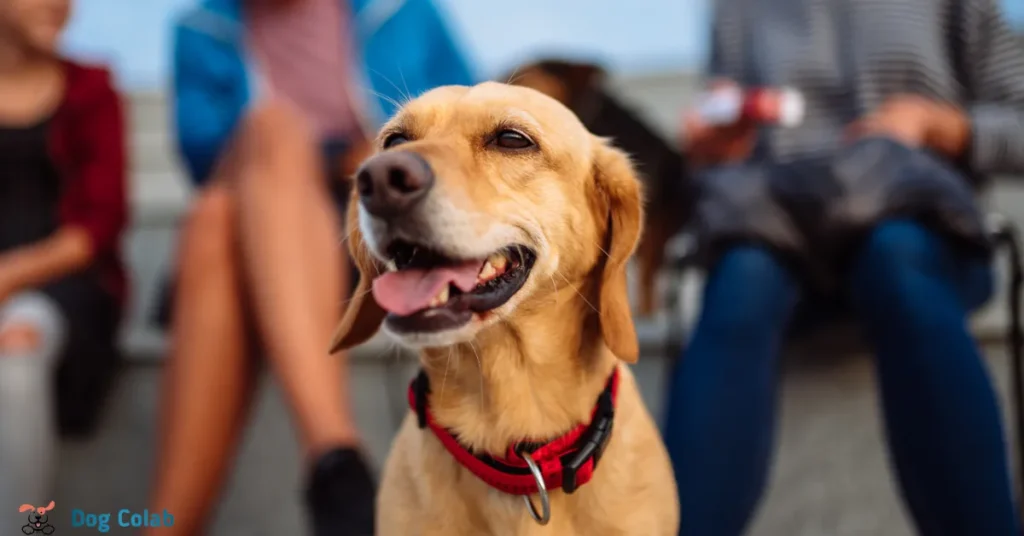
- Assess the Environment: Make sure there are no distractions in the environment that might be diverting your dog’s attention. Dogs can easily get distracted by other animals, noises, or scents.
- Check for Medical Issues: Sometimes, changes in behavior can be a result of underlying health problems. If your dog’s behavior has suddenly changed, consider visiting a veterinarian to rule out any medical issues.
- Positive Reinforcement: Use positive reinforcement to encourage desired behaviors. When your dog does respond to you, even if it’s a small step, reward them with treats, praise, or affection. This helps your dog associate respond to you with positive outcomes.
- Training and Commands: Consistent training is essential for effective communication with your dog. Teach basic commands like “sit,” “stay,” and “come.” Practice these commands in a controlled environment and gradually increase the level of distractions.
- Be More Exciting: Dogs are more likely to pay attention to you if you’re engaging and exciting. Use an enthusiastic tone of voice and use high-value treats or toys as rewards.
- Play and Bonding: Give your dog quality time to play and bond with. Engaging in interactive games like fetch or tug-of-war can strengthen your bond and make your dog more responsive to you.
- Avoid Punishment: Punishing a dog for not responding can worsen the situation and damage the trust between you and your dog. Positive reinforcement is more effective in encouraging desired behaviors.
- Socialization: Proper socialization from a young age is crucial for dogs to develop good behavior and responsiveness to their owners. If your dog is not well-socialized, consider enrolling them in socialization classes.
- Seek Professional Help: If your dog’s ignoring behavior persists despite your efforts, consider seeking help from a professional dog trainer or behaviorist. Based on your dog’s specific needs, they can provide personalized guidance.
You may also be interested in:- Why does my dog biting other dogs legs.
How To Stop My Dog From Ignoring Me?
If your dog is ignoring you, it’s important to remember that effective communication and training take time and patience. To resolve this issue, follow these steps.

- Assess the Situation: Consider why your dog might be ignoring you. Is there something more interesting in their environment? Are they not feeling well? Understanding the underlying reason can help you address the problem more effectively.
- Positive Reinforcement: Encourage your dog to listen to you by using positive reinforcement techniques. Reward them with treats, praise, or their favorite toy when they respond to your commands. This helps create a positive association with following your cues.
- Consistency: Dogs thrive on routine and consistency. Make sure that everyone in your household uses the same commands and training methods. Inconsistent cues can confuse your dog and make them less likely to respond.
- Short Training Sessions: Train for a short period of time and keep it focused. Dogs have a limited attention span, so keeping sessions brief and engaging can help maintain their interest and attention.
- Use High-Value Rewards: Use high-value treats or rewards that your dog really loves. This can motivate them to pay attention and respond to your commands.
- Capture Their Attention: Before giving a command, make sure you have your dog’s attention. You can use their name, a clicker, or a noise to get their focus before issuing a command.
- Avoid Overuse of Commands: If you repeat a command too many times without any response, your dog might learn that they don’t have to listen the first time. Instead of repeating the command, find ways to capture their attention and encourage compliance.
- Train Basic Commands: Teach your dog basic commands like “sit,” “stay,” “come,” and “leave it.” These commands not only establish you as the leader but also ensure their safety in various situations.
Why Does My Dog Ignore Me When I Come Home?
There could be several reasons why your dog ignores you when you come home. One common possibility is that your dog might have become accustomed to your routine and doesn’t see your arrival as a particularly novel or exciting event.
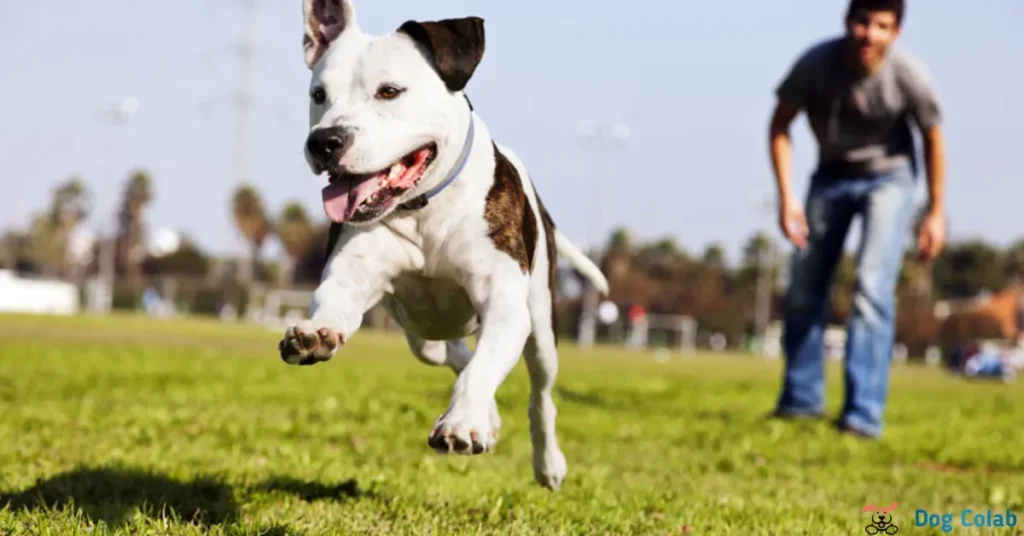
Dogs often show the most enthusiasm when they haven’t seen their owners for a while, and if you have a consistent schedule, your dog might have learned to predict your return. Additionally, if your dog has been engaged in an activity or resting, it might take a moment for them to shift their attention to you. Sometimes, medical issues or changes in behavior could also play a role in your dog’s behavior.
Observing your dog’s overall demeanor, health, and behavior patterns can help you better understand the reasons behind dog response when you come home.
Why Does My Dog Ignore Me When I Call Him?
Dogs might not respond to their names or commands due to distractions in the environment, lack of proper training, or because they haven’t associated the command with positive outcomes. Dogs also have varying levels of attention and focus, so their response can depend on their mood, energy level, and overall training consistency.

It’s essential to ensure that you’ve established a strong positive reinforcement-based training routine, where your dog learns that coming to you when called results in rewards, praise, or playtime.
Read More:- Why are dogs light sleepers.
Why Does My Dog Ignore Me But Not My Husband?
If your dog seems to be ignoring you but paying attention to your husband, it could be due to a variety of factors. If your husband spends more time engaging with the dog in a positive and rewarding manner, the dog may naturally gravitate towards him.
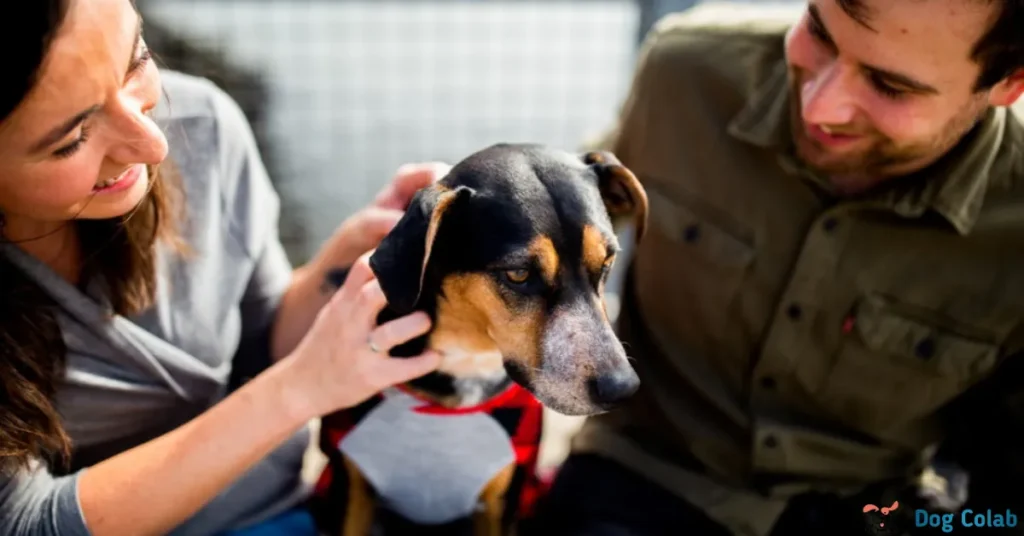
Additionally, dogs are highly attuned to body language and tone of voice. Your husband might unknowingly exhibit more inviting cues, making it easier for the dog to connect with him. To improve your relationship with your dog, try engaging in positive interactions and spending quality time together to build trust and a stronger bond.
Why Does My Dog Ignore Me When I Have Visitors?
Dogs are highly sensitive to changes in their environment and may react differently to new stimuli, such as unfamiliar people in their territory. Your dog could be more interested in observing and assessing the new visitors, which might temporarily divert its attention away from you.
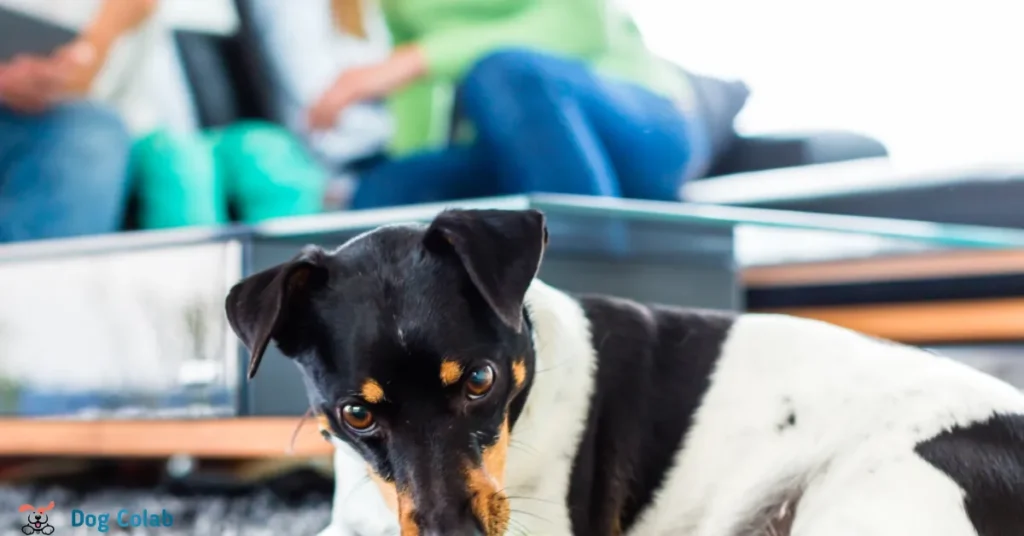
Additionally, if your dog hasn’t been properly socialized or exposed to different people during its early developmental stages, it might feel unsure or stressed around strangers, further contributing to its aloofness.
Conclusion “Why Does My Dog Ignore Me Sometimes”
When your dog ignores you at times, remember that it’s not a sign of them disliking you. Dogs have their moments of distraction or independence, just like humans. It could be due to various reasons such as their mood, health, or even something interesting catching their attention.
Building a strong bond with your furry friend through consistent training, positive interactions, and patience can help reduce such instances. Remember, understanding your dog’s behavior and giving them love will go a long way in strengthening your relationship and creating a happier companionship between you and your furry friend.
NOTE:- More information can be found by clicking this link.
FAQs
1. Why does my dog randomly ignore me?
If your dog ignores you, it’s likely due to training or behavioral issues, not medical problems. After ruling out illness, focusing on training and conditioning can enhance your dog’s responsiveness and recall ability.
2. Do dogs ignore you when they’re mad?
Dogs might give you the silent treatment when they’re upset, showing their annoyance by ignoring you as a form of communication. This behavior can be a sign of their displeasure or irritation.
3. Is ignoring your dog when they do something bad?
Ignoring your dog’s bad behavior alone isn’t enough. While well-intended, it’s incomplete. To effectively teach your dog, address unwanted actions by showing them desirable alternatives. Dogs learn through associations, needing guidance on what behaviors are preferred.
4. What to do when a dog ignores commands?
When a dog ignores commands, remain patient and consistent. Review your training techniques, use high-value rewards, and ensure the commands are clear. If the problem is more complex, you may want to consider professional training.
5. How do I know if my dog is depressed?
Signs of dog depression include lethargy, loss of appetite, social withdrawal, excessive sleeping, and decreased interest in activities. If these symptoms persist, consult a veterinarian to rule out underlying health issues and discuss appropriate interventions.
